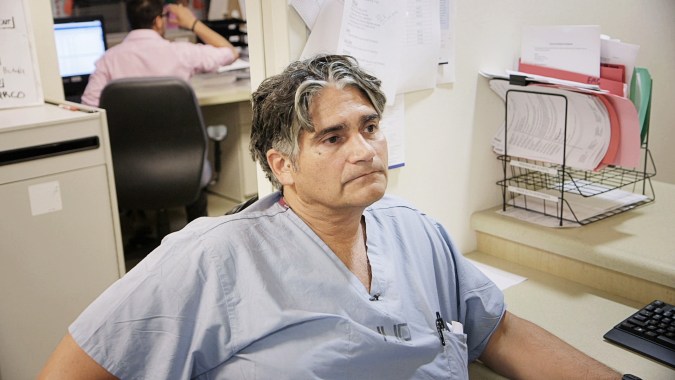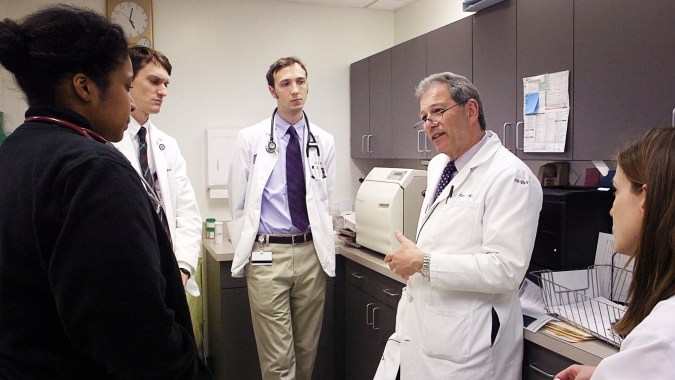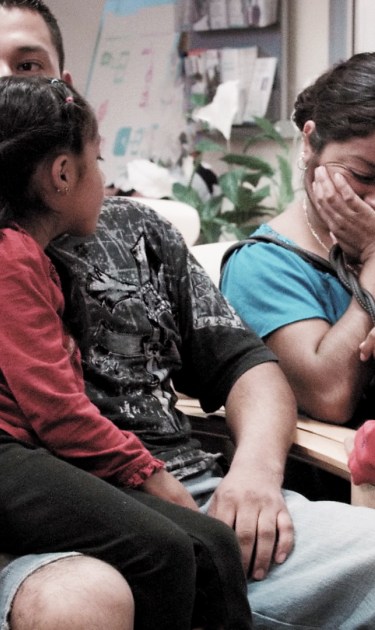It was 15 years ago when Philadelphia-based obstetrician Dr. Jack Ludmir noticed an increasing number of pregnant women showing up for their appointments without having any prenatal care. Most of these women were undocumented immigrants from Mexico who did not qualify for medical assistance because of a new welfare reform act signed into law in 1996.
As far as Ludmir was concerned, the immigration status of these women was not an issue. They were now in the U.S. and needed prenatal care. He wondered if there was anything he could do for this new migrant population in South Philadelphia.
“I felt access to prenatal care was a universal right for all women and I had a moral and ethical obligation to provide it,” said Ludmir, who grew up in Peru. “All women deserve the same treatment regardless of politics.”

Once Ludmir identified the need for access to prenatal care for undocumented women, he turned to his colleague Dr. Steve Larson, who was already working with the migrant population in Kennett Square, Pennsylvania. There, Larson was volunteering his time once a week and providing medical care to the migrants working in the borough’s mushroom fields.
“I grew up in a very Latino friendly environment,” said Larson, whose mother is Puerto Rican and whose father was raised in Venezuela. “There was a need and I always wanted to give back to the community.”
Together, Ludmir and Larson co-founded Puentes de Salud, a volunteer-run health clinic in South Philadelphia that treats undocumented and uninsured immigrants. In the new HBO short documentary Clínica de Migrantes, filmmaker Maxim Pozdorovkin (Pussy Riot: A Punk Prayer) takes an intimate look inside the clinic and underscores the incredible work Ludmir, Larson and the clinic’s staff offer to their underserved patients.
“I wanted the issue of immigration to resonate through the people rather than use interviews to highlight certain ideas about immigration,” said Pozdorovkin. “The story of what life is like for a lot of undocumented immigrants in America is not told that often.”

Larson, too, said having Pozdorovkin and the HBO team come into their practice and capture the personal stories of these immigrants was something he felt could help people understand the human side of what some consider a controversial issue. He likens Clínica de Migrantes to the 1960 TV documentary Harvest of Shame about the plight of migrant farm workers.
“There is a side of the immigration picture that needs to be told and that puts a human face to the story,” Larson said. “If that can be done, I think it could be a very powerful piece of evidence. By reaching out, we stand a chance at opening dialogue that is more meaningful than hate and anger.”
Along with opening minds on immigration issues, Larson said Puentes de Salud became a unique opportunity to create a health care model that could help medical students understand the dynamic between doctors, nurses and a marginalized community and how to navigate it. In the most heartfelt relationship shown in the documentary, a young resident at Puentes must see one of her favorite patients, a Honduran woman suffering from leukemia, go back to her home country.
“[Puentes] is driven by passion and the idealism of all our volunteers,” Larson said. “We think of ourselves as a lighthouse on a stormy sea where students and residents can come and recharge their batteries. For me, it’s a great place to be.”
In the last five years, Puentes has seen an incredible influx of patients from Honduras, El Salvador and Guatemala. Although there has been some angst and fear among the migrant community because of the immigration stance taken by the current U.S. administration, the clinic is not backing down. Ludmir and Larson said their patients should not be afraid the clinic will stop providing health care nor should they worry that seeking out help will expose their immigration status.
“The uncertainty is palpable within the community,” Ludmir said. “But we live a sanctuary city and have a mayor that is incredibly welcoming to all migrants. People are concerned, but that hasn’t changed our willingness to keep providing these services.”
Clínica de Migrantes is currently available on HBO On Demand, HBO Now, and HBO Go.




